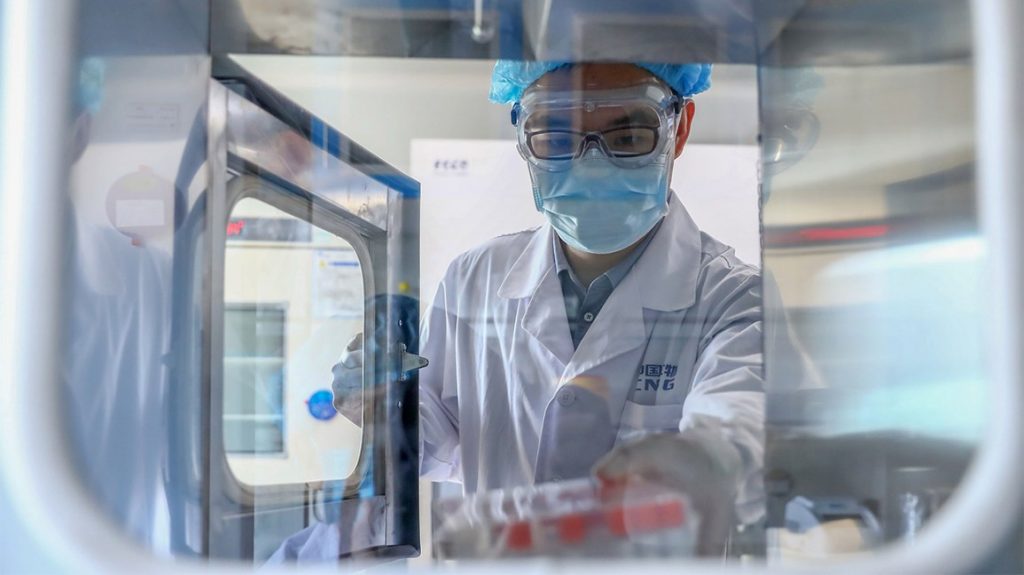With confirmed COVID-19 cases in the United States surpassing 9.4 million and continuing to grow, scientists are pushing forward with efforts to develop vaccines and treatments to slow the pandemic and lessen the disease’s damage.
On Oct. 22, the Food and Drug Administration (FDA)Trusted Source gave the go-ahead to Veklury (remdesivir), the first drug approved for the treatment of COVID-19. It is intended for use in adults and children 12 years and older.
The agency has also issued emergency use authorizations (EUAs)Trusted Source for several other treatments, including convalescent plasma therapy, a drug used to sedate people placed on a ventilator, and two drugs for people undergoing a type of blood purification known as continuous renal replacement therapy.
An EUA allows doctors to use these drugs to treat people even before the medications have gone through the formal FDA approval process.
No vaccine that protects against SARS-CoV-2, the coronavirus that causes COVID-19, has received emergency use authorization or full approval in the United States. However, some countries have granted limited or early approval to certain vaccines.
Over the coming months, we may see additional drugs approved as COVID-19 treatments, depending on the outcome of clinical trials.
Experts also expect that a COVID-19 vaccine might be available in spring or summer 2021, although certain high-risk groups may have access to a vaccine earlier.
As we wait for additional treatments and a possible vaccine, there are still other toolsTrusted Source we can use to protect ourselves and others from the new coronavirus.
“Even though technological advances allow us to do certain things more quickly, we still have to rely on social distancing, contact tracing, self-isolation, and other measures,” Dr. Bruce Y. Lee, a professor at the CUNY Graduate School of Public Health & Health Policy, told Healthline.
Vaccine development
Vaccines are designed to protect people before they’re exposed to a virus — in this case SARS-CoV-2.
A vaccine basically trains the immune systemTrusted Source to recognize and attack a virus, even one it hasn’t seen before. While vaccines imitate an infection, they almost never cause illness.
Vaccines also protect the community by reducing the spread of disease among people. This protection is known as herd, or community, immunity.
While many potential vaccines are in development, there is no guarantee any of these will work.
“There’s a lot of uncertainty with vaccine development,” Lee said. “Naturally, you have to make sure the vaccine is safe. But you also have to make sure the vaccine will elicit enough of an immune response.”
Like drugs, potential vaccines have to pass through clinical trial stagesTrusted Source. This is especially important when it comes to safety, even during a pandemic.
Scientists are testing 50 candidate vaccines in clinical trials in people.
At least 150 candidate vaccinesTrusted Source are in preclinical development, including animal and laboratory testing.
Six vaccines, in China and Russia, have been given limited or early approval. These were released before the completion of phase 3 clinical trials, which has raised some concerns about safety.
Many scientists and public health experts caution that taking shortcuts with the vaccine approval process could damage the public’s faith in any approved vaccine.
“The public’s willingness to back quarantines and other public health measures to slow spread tends to correlate with how much people trust the government’s health advice,” Shibo Jiang, a virologist at Fudan University in China, wrote in the journal NatureTrusted Source.
“A rush into potentially risky vaccines and therapies will betray that trust and discourage work to develop better assessments,” he wrote.
Vaccine timeline
Scientists began working on candidate vaccines to protect against SARS-CoV-2 in January after the virus’s genetic code, or genome, had been deciphered.
While vaccine development typically takes years, scientists hope to have a safe and effective COVID-19 vaccine sometime next year. This process has been sped up by recent advances in technology.
Experts say the likely timeline for distribution of a vaccine is spring or summer of 2021, although some high-risk groups could receive a vaccine as early as January.
Some scientists argue that a “human challenge trial” could speed up the vaccine clinical trials and answer questions about the vaccine’s efficacy and long-term protection.
In this type of trial, healthy volunteers are given a potential vaccine and then intentionally infected with the virus.
Usually, researchers wait for a person given a potential vaccine to be exposed naturally to the virus. Then they look at how well the person was protected by the vaccine.
There are no plans for this kind of study in the United States, but more than 38,000 people around the world have signed up to take part in this kind of trial.
In the United Kingdom, researchers are recruiting volunteers for a challenge trial. If the trial is approved by regulators, researchers plan to start in January.
A human challenge trial raises many ethical questions. One is that there’s still a lot we don’t know about this virus and disease, including who will get seriously ill or die from COVID-19.
That means people can’t really know the risks of participating in the study, so they wouldn’t be able to give high-quality informed consent. This is an essential part of modern clinical trials.
The World Health Organization released ethical guidelines to navigate these tricky waters.


